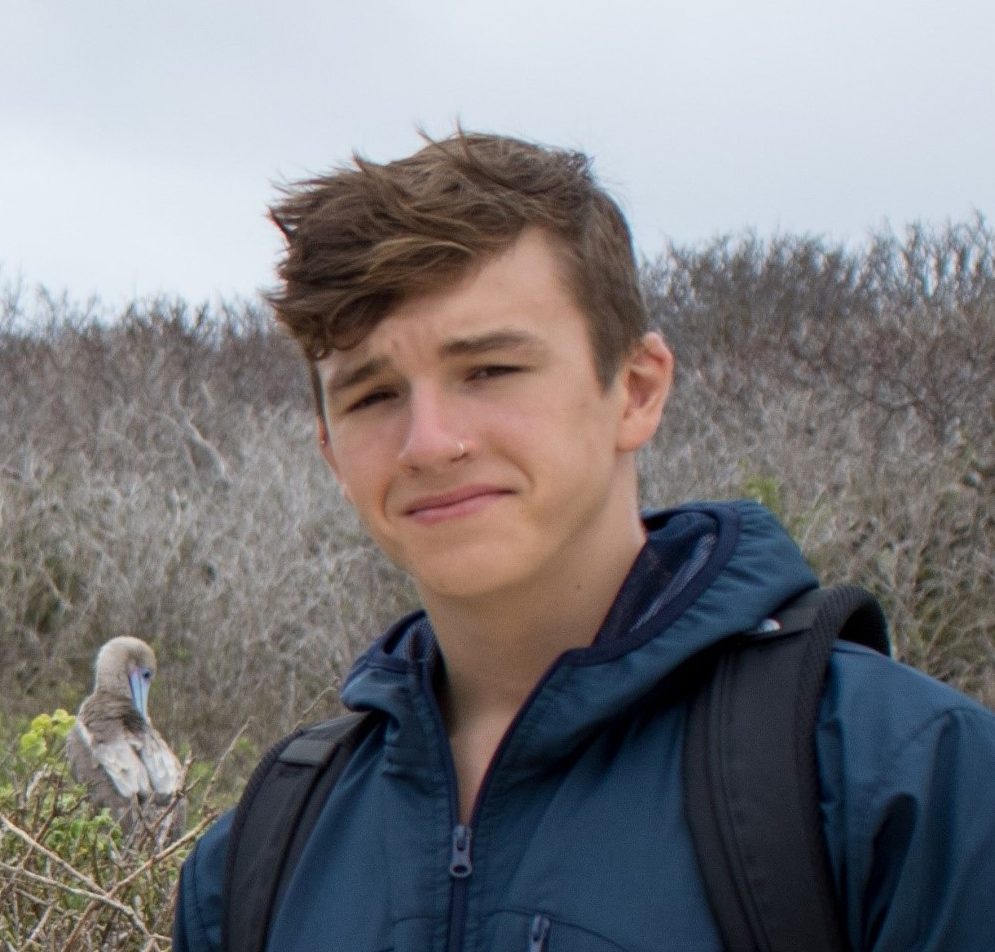



Ethan Clark
Aura CDT Activities:
I previously acted as Chair of the Aura CDT Student Committee where it was my aim to ensure that all student voices were heard, and to assist in providing an inclusive and engaging environment for all involved with the CDT.
The climate is in turmoil with natural disasters becoming ever more prevalent and global temperatures rising at an alarming rate. A secondary impact of the climate catastrophe is the crash in biodiversity, with a fifth of countries across the globe now at risk of widespread ecosystem collapse – this poses a significant threat to today’s society.
Macroalgae aquaculture has demonstrated its ability to sequester a huge amount of carbon while also boosting biodiversity through the provision of nursery habitats, food, and shelter to a variety of native and commercially important organisms. If this ability can be upscaled and optimised, there is potential to develop highly productive areas of the ocean which sink a huge amount of carbon at the same time.
To upscale the industry, operations must be moved offshore where there is a suitable area, away from delicate coastal ecosystems. This, however, brings challenges such as the turbid environment the infrastructure would have to withstand, and competition of offshore space.
Multi-use is the colocation of industries in a single space to enable the sharing of costs, infrastructure, and operations. The rapid expansion of the offshore wind industry provides opportunities for other sectors, such as macroalgae aquaculture, to harness the offshore space.
My project examines the viability of colocation of commercial macroalgae aquaculture and offshore wind to efficiently sink carbon on a large scale, outlining the benefits and challenges that must be overcome.
Find out more about this research
Background:
I graduated from Swansea University in 2020, with a BSc in Marine Biology and an MSc in Engineering Leadership and Management. My Undergraduate Degree gave me a keen insight into the marine world and a deeper understanding of the long-term impact humans can have on the environment. My Masters examined the industry side of things, completing projects with TATA Steel and delving into the managing of assets, projects and people. My final project was a strategic analysis of Swansea Tidal Lagoon assessing the viability of renewable tidal technologies.
Research Interests:
My research interests lean towards multiuse systems, incorporating aquaculture farms around turbines in order to fully harness the space thereby minimising disturbance to the environment. I also have a keen interest in studying this impact that humans can have, and the effect on benthic and pelagic communities during the construction, operations and decommissioning of a wind farm.
Why you applied for the Aura CDT:
I applied to the Aura CDT programme as I wanted to extend my knowledge of renewables while still utilising my BSc knowledge in marine biology. Being a multidisciplinary programme, I believe it will do just that and help me develop my skills in order to pursue a career within the renewable industry.
Contact details:

For an informal discussion, call +44 (0) 1482 463331
or contact auracdt@hull.ac.uk